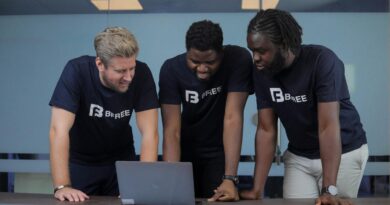When AI bots pose as humans
Welcome to Startups Weekly. Sign up here to get it in your inbox every Friday afternoon.
This week, I’ve been doing a lot of thinking about the implications of artificial intelligence. One of the most fragile parts of the puzzle is the training data. We already know that you can see if your images were used to train the datasets and that a lot of the training datasets out there are . . . spurious at best. Some startups are trying to build datasets trained exclusively on licensed data, and human artists are pretty grumpy when big-name studios use AI to generate art.
An interesting curveball is realizing that even evaluating training data may be challenging, as researchers discover that Mechanical Turk workers — who are, in theory, human workers doing tasks that machines can’t do — are reportedly using AI tools themselves. That’s fine for some tasks, but not great if the text they are generating is meant to be used as the rubric that AI-generating text tools are measured against. The old computing adage of “garbage in, garbage out” still stands. If you can’t trust the training data, you can’t trust the output (TC+).
Seen through the lens of startups, AI is continuing to go gangbusters — and Amazon’s AWS is throwing its not inconsiderable weight behind the burgeoning trend, with a $100 million program to fund generative AI initiatives.
The highest highs and deepest lows of transportation
Image Credits: Bryce Durbin / TechCrunch
It’s a bad week when a submersible goes missing, followed by a series of reports showing that perhaps the company didn’t have the most solid safety track record. The sub imploded under the ocean’s crushing pressure, killing its five passengers and raising new questions about the role of whistleblowers in startup land. The OceanGate underwater vessel used a carbon fiber hull that “wasn’t rated for Titanic depths,” claimed the operations-director-turned-whistleblower. It goes to show that, while startups famously “move fast and break stuff,” perhaps that tenet doesn’t quite extend to life-or-death critical equipment.
A highlight for transportation this week is a breakthrough in battery manufacturing. It turns out that up to half the energy required to make a lithium-ion cell is used in the process of drying certain components of the battery cell. Volkswagen just came up with a new process (TC+) that does away with that requirement, drastically reducing the cost and time it takes to create the batteries that power our electric vehicles.
- Sure, that seems . . . useful?: In what has to be one of the biggest headscratchers of the decade, Mercedes is adding ChatGPT to its infotainment system, Devin reports.
- Give us those sleek Tesla plugs: Last week, GM and Ford announced they would be using Tesla’s North American Charging Standard (NACS) very soon. Tim predicted that the company’s Supercharger network will strain as a result. This week, Rivian announced it will adopt the charging standard as well.
- More NACS tailwinds: First GM and Ford, then Rivian, and now Texas weighs in, saying state-funded EV chargers must include Tesla plugs.
- Bring on the challenger brands: Abu Dhabi pours $740 million into the Chinese EV brand Nio.
Hackers gonna hack

Image Credits: Bryce Durbin / TechCrunch
Both in startup land and beyond, we are seeing a tremendous amount of movement in security news over the past couple of weeks. We’ve had a ton of coverage of Reddit slowly imploding over the new API charges the social media giant introduced a little while back. But one story I particularly wanted to highlight is that hackers are threatening to release confidential data stolen from Reddit unless the company pays a ransom demand — and reverses its controversial API price hikes. It seems pretty curious for hackers to demand both policy changes and cash. If they were given one or the other, I wonder which they would choose — and what that says about the power of hack-tivism.
Malicious hacking has long been in the news, but I find it particularly interesting that we are seeing more and more startups trying to help tackle the problem, whether that’s hardening API security, data security at source or Internet of Things devices. As hackers get more sophisticated, and as computer security exploit exploration becomes more prevalent (just last week, a ransomware gang listed its first victims of MOVEit mass-hacks, which included U.S. banks and universities), opportunities for startups also increase. And yet, as Alex explored recently, it seems like a miss that VCs aren’t queuing around the block (TC+) to fund the current generation of cybersecurity companies.
- That seems bad. That’s bad, right? Yeah, that’s bad: A simple bug exposed access to thousands of smart security alarm systems.
- LockBit goes Pharma: LockBit claims ransomware attack on pharma giant Granules India.
- The feds close in: The feds in the U.S. caught another LockBit hacker.
You’re so money and you don’t even know it

Image Credits: Getty Images/Svetlana Borovkova
Fintech, what are we going to do with you? Even in an industry that’s all about money, the vertical just continues exploding with investment. Paro raised $25 million to match independent financial experts with firms, open banking fintech company Volt just raised a huge round at a valuation north of $350 million, and Majority, a digital bank for U.S. migrants, closed almost $10 million as it expands operations in Texas.
Sexy it ain’t, but investors know that fintech — once the company gets a soupçon of traction and a fistful of customers — is interesting for two reasons: Money never goes out of fashion, and there are M&A-hungry multinational giants who are standing by to snap up a company that’s on the upswing. At startup scale, the most recent example was that Robinhood just acquired credit card startup X1 for $95 million. At a very different scale indeed, Nasdaq announced it is planning to acquire financial services software company Adenza for $10.5 billion.
There’s money in them money trees, it appears.
- Wait, who am I paying?: Catherine reports that Notarize launches Proof and doubles down on ensuring safe(r) online transactions.
- That’s it, no more fraud for you: Mary Ann reports that Plaid unveils a new collaboration network aimed at sharing fraud intelligence.
Top reads on TechCrunch this week

Image Credits: Joseph Giacomin (opens in a new window) / Getty Images
If you’re struggling to raise money, there’s probably one of three reasons why investors keep giving you the cold shoulder: The market might be too small, the team isn’t good enough, or your plans simply don’t make sense. In my latest on TechCrunch+, I break down how VCs evaluate those things, and how you can push back.
If you can’t beat ’em with a tablet…: You can think outside the box. Brian reviews the new Google Pixel Tablet and concludes that it’s all about the dock. It’s going to have its work cut out against Apple’s iPad Pro-looking, entry-level iPads.
Welcome to Streamberry: The Netflix doppelgänger is customized to your worst nightmares. Lauren reports that Netflix launches a website based on the fictional streaming service from “Black Mirror.” On that note, don’t miss the piece I wrote about how technology unlocked Netflix’s business model (TC+).
Leaping into the quantum realm: Frederic reports that Microsoft expects to build a quantum supercomputer within 10 years. Maybe that’s why they need that fusion reactor?
Get your TechCrunch fix IRL. Join us at Disrupt 2023 in San Francisco this September to immerse yourself in all things startup. From headline interviews to intimate roundtables to a jam-packed startup expo floor, there’s something for everyone at Disrupt. Save up to $600 when you buy your pass now through August 11, and save 15% on top of that with promo code STARTUPS. Learn more.

When AI bots pose as humans by Haje Jan Kamps originally published on TechCrunch





